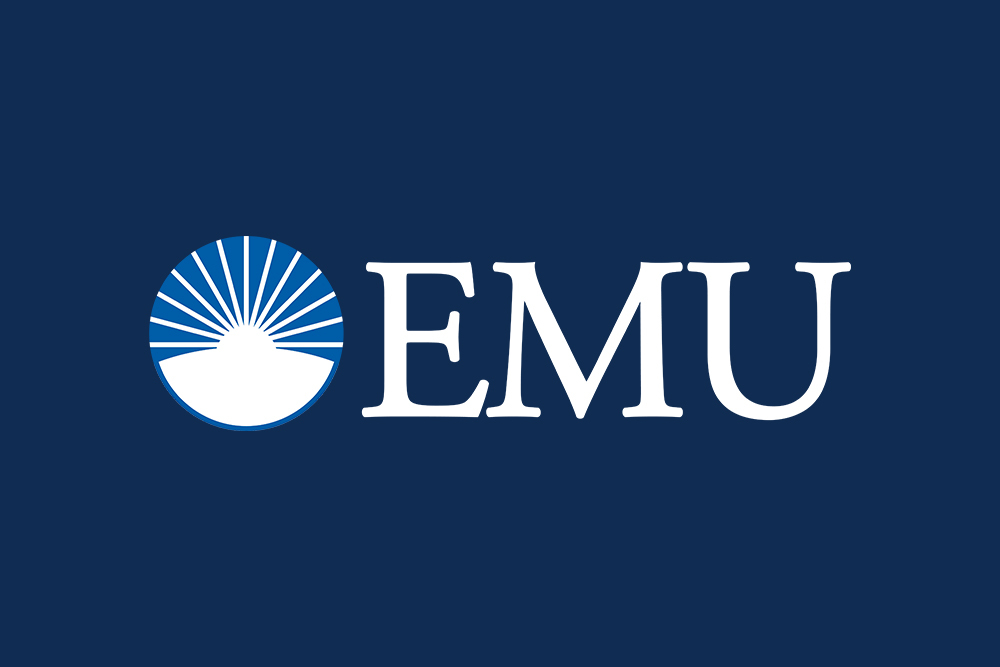Though Eastern Mennonite University classes were not yet in session last week, a range of communications appeared in inboxes and on social media feeds as university administrators and program leaders addressed the Jan. 6 riot and the aftermath.
In all, the collective message is an answer of hope – for the prevailing relevance of the university’s mission; our shared commitment to teach, learn, live and hold the values of peace and justice; and our continued honest dialogue and engagement with legacies of past and present for the common good of the future.
- President Susan Schultz Huxman and Provost Fred Kniss sent an all-campus email the morning of Thursday, Jan. 7.
- The Center for Justice and Peacebuilding convened its leadership team to publish a reflection with context, analysis, and resources. [Also see an 11/6/2020 post about the presidential election.]
- At the Washington Community Scholars’ Center, based just four miles from the Capitol in Washington D.C., the staff reached out to their incoming students, set to arrive for orientation in five days, with an email. Later social media posts [view Facebook and Instagram] condemned the violence and pledged to stand with those most threatened by the white supremacy espoused by some involved.
‘Engaging others unlike ourselves’
In the email, Huxman and Kniss urged the EMU community to view “the deeply troubling signs of political and civic dysfunction, including racialized responses to violence” as a call to continue the important work of contributing to a healthy democracy.
As educators, we have a noble responsibility to equip our students with the knowledge, skills and dispositions to discover, analyze and evaluate “a firehose of information” for its accuracy, truth, usefulness and ethical ramifications…
As a “community of learners,” we at EMU commit to a Life Together that privileges love for God and each other. Our life together calls us to listen well, attend to our needs as a diverse community, and do the courageous work to recognize where we fall short and commit to repair.
As a faith-informed peace and justice university, our mission, vision and values call us to renounce violence and embrace the hard work of engaging with others unlike ourselves.
Significantly, EMU’s first day of the spring semester, Monday, Jan. 18, marks the nation-wide commemoration – and the traditional university celebration – of Martin Luther King Day. Visit www.emu.edu/mlk for a full listing of virtual events. On Wednesday of the same week, during Inauguration Day, EMU hosts an opening convocation on the theme of Bringing Healing and Hope Amidst Crisis.”
“May we all take these opportunities to renew our personal and institutional commitments to racial justice, continue building a beloved community, and move into the future with hope,” the email concludes.
CJP: ‘Honesty’ is prevailing
Executive Director Jayne Docherty and members of the leadership team representing CJP’s programs, point out that the events of Jan. 6 occurred on the Feast of the Epiphany: “…many “experience[d] sudden insight into the true nature of where this country is and where we might end up if we don’t do something.”
The reflection, also shared on CJP’s Facebook page, names a new and public recognition of our current threats to democracy and the associated “cultural tipping points” related to racial disparities, law enforcement, domestic terrorism and Christian rhetoric. As a beginning step towards discussing the events, readers are urged to use precise, accurate words.
WCSC: A ‘lab’ to examine privilege and power
With their students arriving in just five days to begin spring semester classes and internships at Washington Community Scholars’ Center in Washington D.C., co-directors Kimberly Schmidt and Ryan Good and communications and program administrator Jamie Reich first focused on assuring members of the new cohort that all programming was on schedule and that the neighborhood of Brookland, where the Nelson Good House is located, remained safe and quiet.
Since the 1970s, the center’s urban location and its strong local connections to residents and businesses has provided a uniquely challenging cross-cultural experience.
“Spring 2021 promises to be a time where we can learn about the resilience of the people who have lived in D.C., analyze the power structures, and contemplate our role in it all,” the WCSC team wrote. “We’re excited to take part in a transformative semester with you.”
WCSC messaging [view Facebook and Instagram posts] shared disapproval and condemnation of the ideologies and violence of the Jan. 6 attack and pledged continued attention to teaching about power, privilege, race and class — themes that learners engage with in coursework and in their professional experiences as interns in businesses, nonprofit organizations, and institutions of the federal government.
